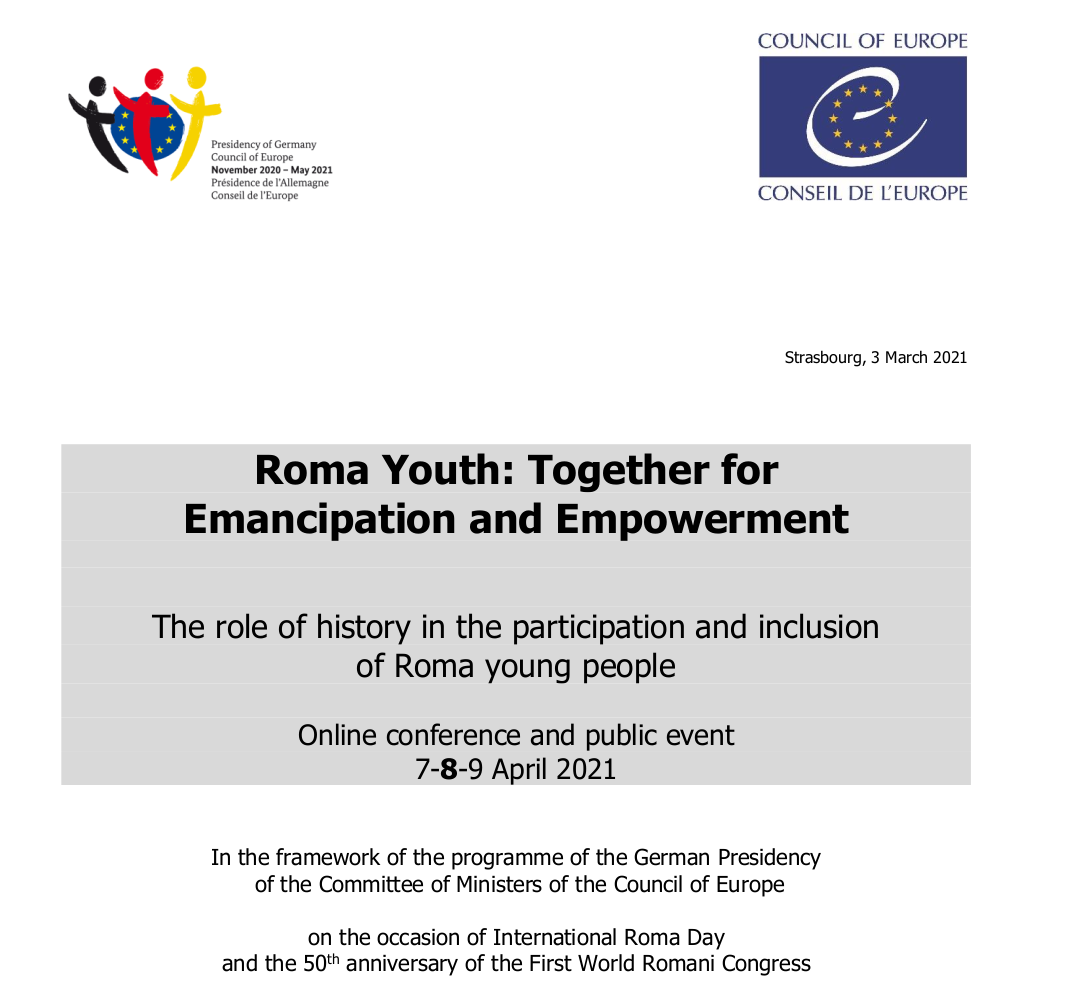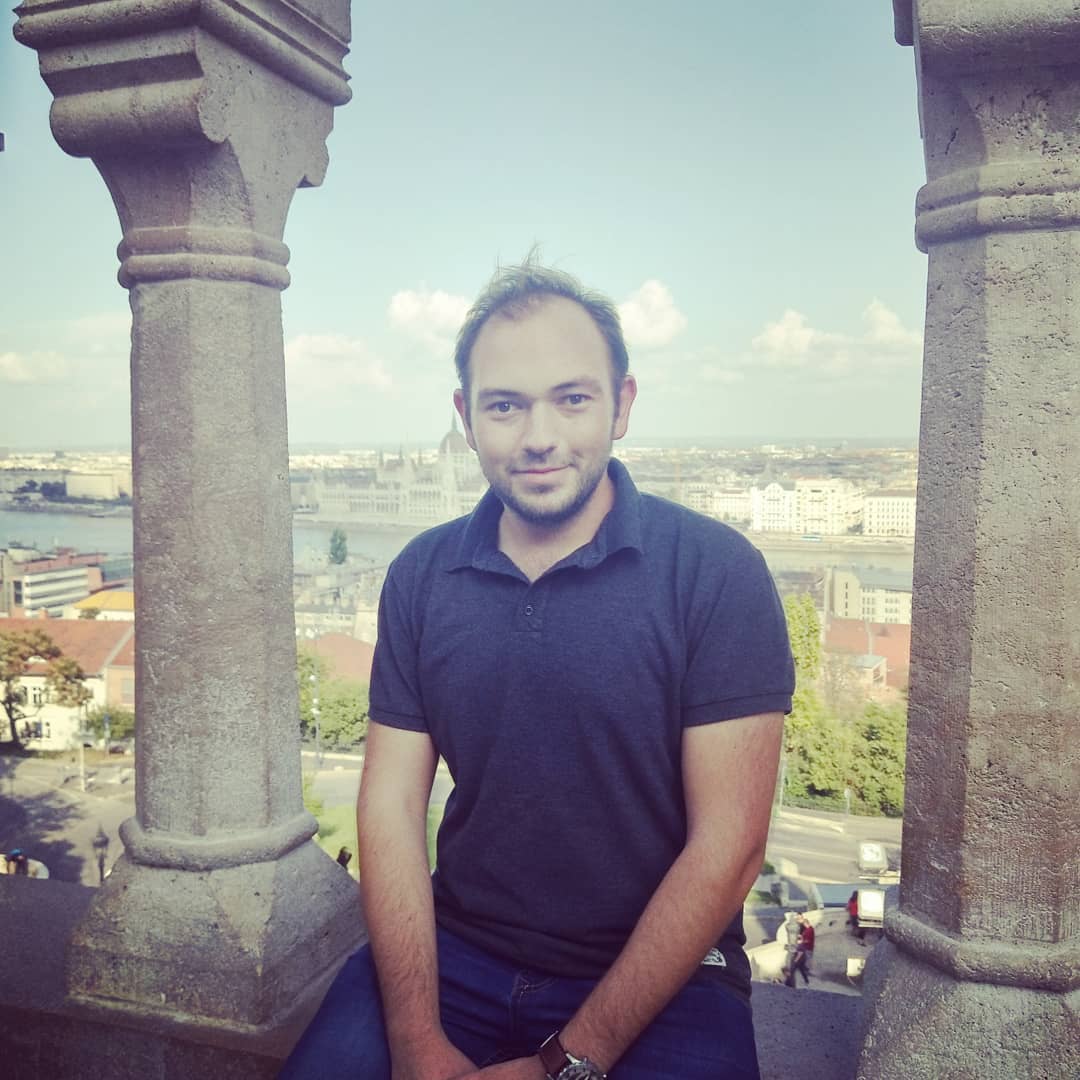Youth Statement on the occasion of April 8 – International Roma Day 2021
As young people and representatives of Roma youth organisations networks we have met to share our experiences and together celebrate International Roma Day and the 50th anniversary of the first World Romani Congress. While the roots of Romani activism go back to the 19th century, 8 April 1971 constitutes a turning point for Roma communities around the world, when activists moved their struggle to the international arena. We take pride on the achievements of our elders, pioneers and predecessors of the Roma movement.
We acknowledge the efforts of the Council of Europe and its Youth Department towards Roma youth emancipation and empowerment, active youth participation and in combating antigypsyism. We especially welcome the Recommendation of the Committee of Ministers to member States on the inclusion of the history of Roma and Travellers in school curricula and teaching materials and the preparation of a future recommendation on Roma youth participation. Roma arts and culture play a central role in restoring Roma dignity and challenging the predominantly negative image of Roma people among the majority. Roma arts and culture remain greatly under-represented in majority spaces and cultural narratives, both internationally and nationally. This supports dominant discourses and imagery that are negative and stereotypical. More Roma narratives and representations in public spaces are necessary to challenge antigypsyism. By including Roma arts, culture and history in future Roma-focused policies and measures, the Council of Europe member states will send a message that European and national cultural narratives should highlight Roma belonging, contributions and achievements. We take pride on our history, arts and culture; their diversity enriches our communities and our societies.
We want Roma youth to have access to their own culture and have tools to enjoy and promote their cultural identity, history and dignity. We want to fight stigma associated with Roma and to prevent antigypsyism with alternative discourses rooted in self-representation and in Roma leadership.
We express our concern about the continued neglect of several important aspects by policy makers when it comes to Roma youth inclusion. We express our deep concern about the rise of antigypsyism, anti-Roma rhetoric and violent attacks against Roma in Europe, which are supported by some political movements, populist politicians and irresponsible media. Antigypsyism remains a greater challenge in today’s Europe and for young Roma people in our countries. The most frequent concerns for Roma youth are related to racism and discrimination together with access to education, training and schooling. Since the beginning of the Covid-19 pandemic, Roma settlements have been cordoned off, water supplies have been partially cut off, and people have been barred from food and medical supplies. Violent attacks by the police and gendarmerie have occurred several times on Roma communities in the past months.
There is still a lack of knowledge among the majority of society about Roma history, culture, antigypsyism and the Roma Genocide that took place during World War II. Until today the Roma Holocaust still does not form part of the canon of European history and remains largely unknown. In 2015, the European Parliament passed a Resolution declaring 2 August as “European Roma Holocaust Memorial Day” in memory of the at least 500,000 Roma exterminated during the Second World War by the Nazi and other regimes and their allies. Despite this, many governments have not yet officially recognised the historical facts and a common historical responsibility. The Council of Europe should ensure that the Recommendation of the Committee of Ministers to member States on the inclusion of the history of Roma and Travellers in school curricula and teaching materials is implemented.
Social and economic exclusion has just been deepened by the Covid-19 pandemic, as many Roma students found themselves unable to access online education, due to absent infrastructure and equipment (the digital divide), while in the long run it still represents the biggest challenge for Roma youth participation and results in political and cultural exclusion as well. Roma youth are part of the largest and youngest ethnic minority in Europe and strive for economic empowerment and participation. We insist that all necessary measures are taken and funded in order to encourage their economic and educational efforts and enable them to access national labour markets. We want to see Roma youth entrepreneurship highlighted and promoted as an important aspect that could not only contribute to economic empowerment but also strengthen the path of social inclusion and active citizenship of young Roma. We call on the Council of Europe member States to seek active dialogue with Roma youth organisations and to ensure lasting mechanisms of empowerment and participation of young Roma. We call on national governments to allocate national and European funding to invest in Roma youth organisations as engines of change.
Many Roma young people experience multiple discrimination that hinders their human rights; this concerns, among others, LGBTQIA+ Roma, Roma girls, Roma migrants and Roma with disabilities. Acknowledging the great vulnerability of these groups, targeting them with special and complex measures and providing mechanisms to empower them and fight inequalities within and outside of Roma communities is an important challenge, which deserves to be addressed in all EU and national mainstream policies. Approaches that take into account intersectional identities are necessary.
We call on the Council of Europe:
• to improve the good practice of Roma youth involvement and expertise in processes of policy making.
• to improve the coordination of policies concerning Roma youth among European institutions and stakeholders and to improve the communication between these institutions.
• to invest in strengthening the capacity and structures of Roma youth organisations.
• to enable the monitoring of policies being implemented by setting up a permanent working group consisting of Roma youth.
• to call on member states to make Roma Youth a priority within National Roma Strategies. Roma youth organisations must be involved in the National Roma Platforms and in important consultation mechanisms concerning Roma and youth issues.
• to emphasise the importance of double mainstreaming – including Roma issues in youth policies and youth issues in Roma policies and to encourage the European Youth Forum and National Youth Councils to ensure the meaningful participation of Roma youth individuals and organisations in their mainstream structures.
We demand a return to the values that have enriched Europe. These values such as solidarity, respect for diversity and human rights need to be continuously and consistently respected. European society can only be powerful if it has a strong Roma youth. Therefore, all relevant policy measures must be framed by, with and for Roma Youth in respectful and equal cooperation with non-Roma youth and the majority societies as a whole
This statement is also available in French and Romanes, and you can find them here





